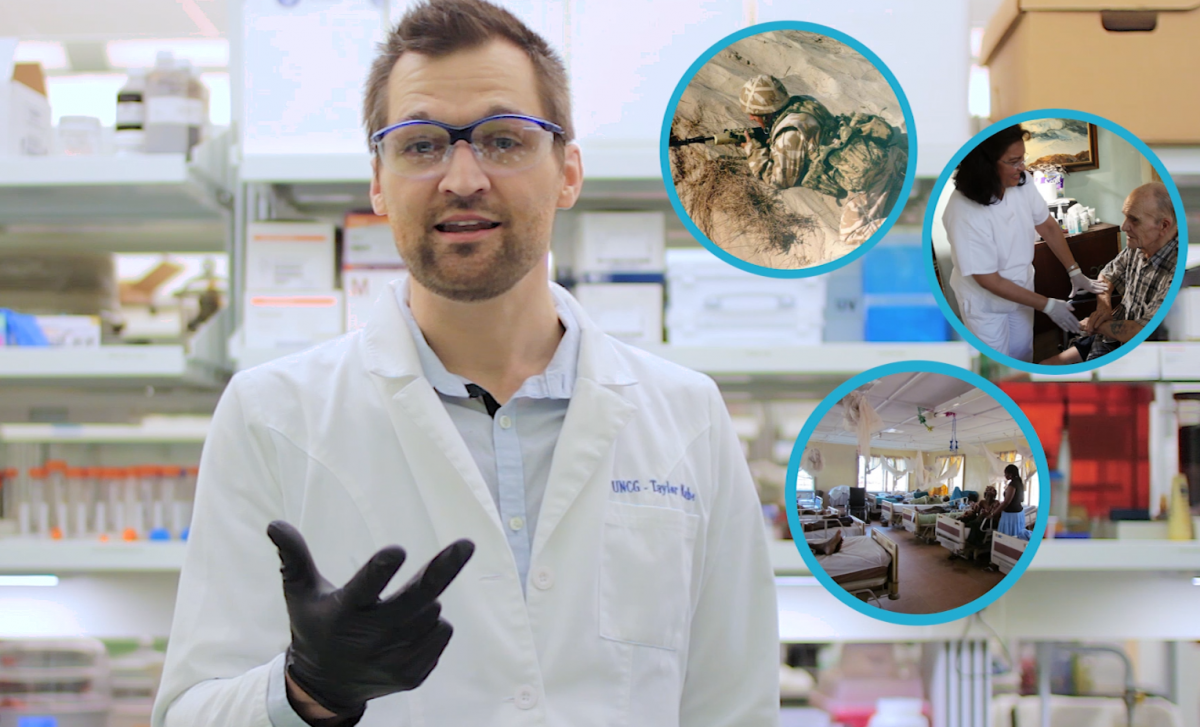(February 16, 2017) The National Nanotechnology Coordination Office (NNCO) is pleased to announce the winners of this round of Nano Film, a video contest that asks people to talk about nanotechnology. This round’s winners come from the University of North Carolina at Greensboro, where nanoscience graduate student, Taylor Mabe, collaborated with film student, Jenna Schad, to film Portable Devices for Disease Diagnostics. Their video describes a nanotechnology-enabled, handheld sensor that could “do an analysis anywhere in the world at any time!” As Taylor explains, sensors like these could be used by soldiers in the field, by patients requiring care and testing at home, or by doctors to screen patients who live in areas that are difficult to access. Congratulations to Taylor and Jenna!
Videos submitted by students from universities across the United States and U.S. territories were posted on NanoTube, the official National Nanotechnology Initiative (NNI) YouTube channel, for public voting. The winning video was chosen by representatives from the NNI member agencies from the top two videos identified by public voting. This video will be featured on Nano.gov for the next month. For more information on the Nano Film contest rules and judges, visit the student video contest page on Nano.gov.

| Still from Portable Devices for Disease Diagnostics |
Video by: Taylor Mabe and Jenna Schad
School: University of North Carolina at Greensboro, Joint School of Nanoscience & Nanoengineering, Wei Group
Taylor and Jenna’s description: “Shrinking chemical instrumentation can show the same improvements that have revolutionized the computer industry. Faster, cheaper, and portable are some of these benefits. With the world's analytical instrumentation market in the billions of dollars and only 0.1% using small biosensors, there is a vast market growth potential and need, as the shortcomings with large instruments can be solved. Imagine the benefits to mankind from the ability to do an analysis anywhere in the world at any time! The possibilities are endless. Our research focuses on fabricating such a device for an array of diseases. Simply changing the capture molecule on the sensor surface dictates which disease is being tested for. Fabricated at the University of North Carolina at Greensboro, these sensors fit in the palm of the hand. The biosensors work on the nanoscale by detecting biological molecules in very small amounts.”


